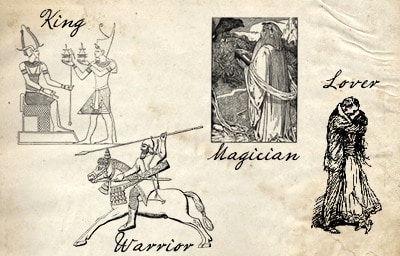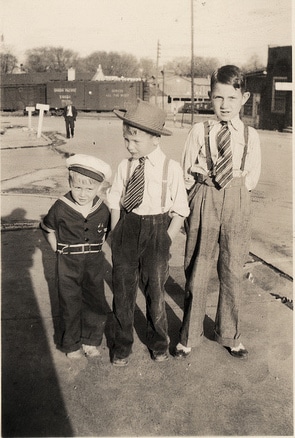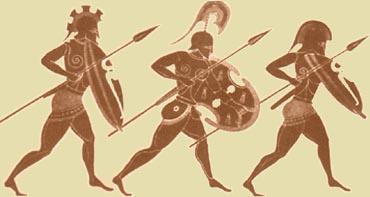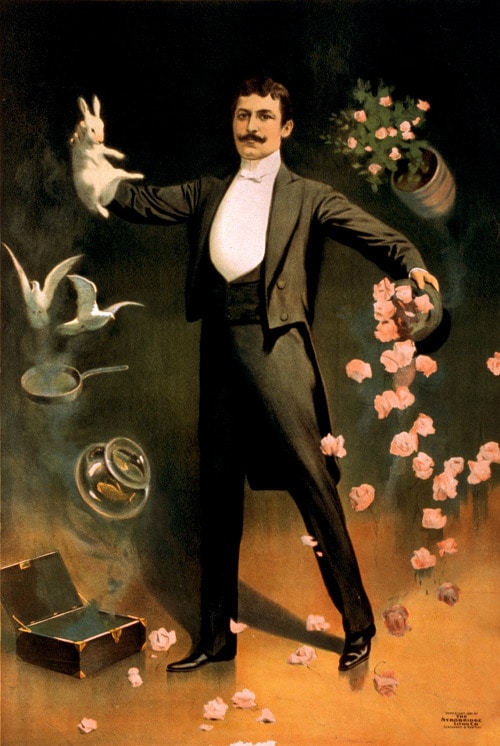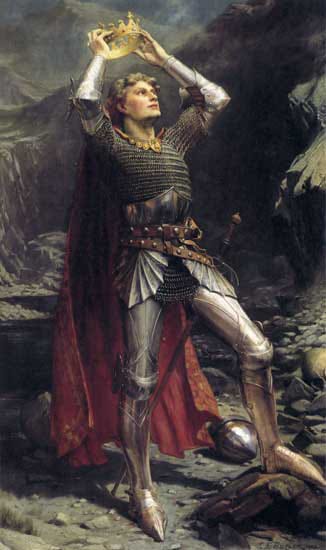
This is the sixth and final part of a series on the archetypes of mature masculinity based on the book King, Warrior, Magician, Lover by Robert Moore and Douglas Gillette. If you haven’t already, I highly recommend reading the introduction to the series first. Also, keep in mind that these posts are a little more esoteric than our normal fare, and are meant to be contemplated and thoughtfully reflected upon.
The King archetype is the most important of the four mature masculine archetypes. Just as a good king in mythological stories is often something of a Renaissance man–a good warrior, magician, and lover–the King archetype incorporates the other three mature masculine archetypes in perfect harmony. A man who accesses the King archetype in its fullness will also have accessed the Warrior, Magician, and Lover archetypes. For this reason, the King archetype is typically the last of the mature masculine archetypes to power up in a man’s life. In this way, it is truly the crown of the other archetypes, the energy that gives a man a sense of his full, godlike potential.
The Characteristics of the King in His Fullness
He is centered.
Throughout history, cultures have often placed the king at the center of the universe. From him radiated all of existence. If you look at how ancient civilizations laid out their cities, we often see that the dwelling place of the king or leader sat at the center.
In addition to serving as the geographic center of his realm, the ancient king also represented its spiritual center as well. He was the intermediary between heaven and earth. Through his divine powers, the king brought order to the universe by reconciling opposite forces. Myths abound of kings battling evil demonic creatures and establishing order in chaos.
When a man is living the King archetype in its fullness, he feels that same centering power within himself. Not that he believes the world revolves around him, but rather that his confidence, purpose, and well-being give him a supreme sense of balance. Even when the world around him becomes chaotic, he remains cool, calm, and collected. He acts, rather than reacts. He’s the rock in crisis. A man fully engaged with positive King energy is completely present as a man. Because of his position at the center of things, he can survey everything that is going on, soak it all in, and then take a broad view of things. This overarching perspective allows him to remain immovable in the face of the passing and superficial.
He is decisive.
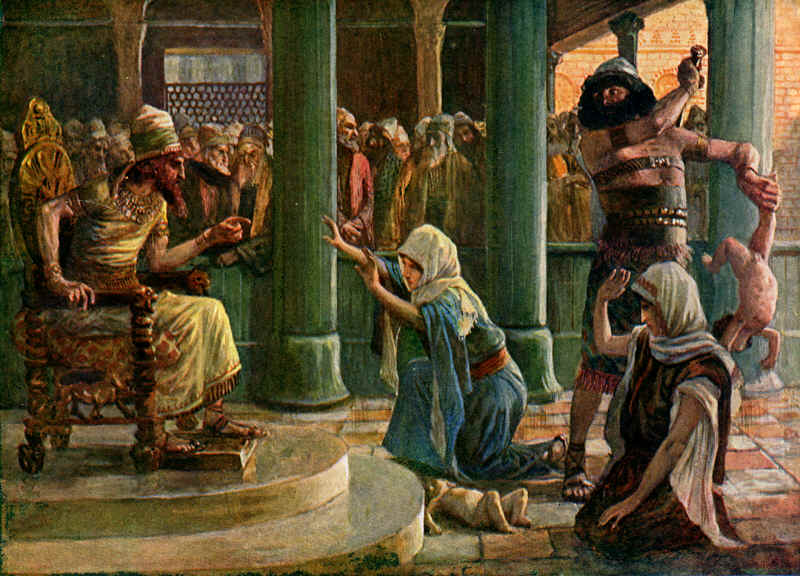
The King is the executive of the other archetypes, and as such, is charged with making decisions. His ability to be decisive is rooted in two things. First, who he is and what he stands for; the King’s core values are centered on firm and unchanging principles. So when a crisis comes, he does not waver because he has already determined the course he will take. Secondly, the King seasons his decisions with experience. His experiences provide him with practical wisdom: the knowledge of how to do the right thing, at the right time, for the right reasons.
The word integrity is related to the roots of words like “integrate” and “entire.” In Spanish it is rendered “integro,” meaning whole. Integrity thus implies the state of being complete, undivided, intact, and unbroken. Integrity is really the bond that holds a man’s other virtues together; it is the mark of a man who has successfully integrated all good principles. His life is a unified whole.
The King has not only integrated all the other archetypes, but seeks this wholeness in other areas of his life as well. He mends broken relationships, keeps his word, acts with honesty, and takes responsibility for his actions. He is who he says he is; he doesn’t have one set of principles for Sundays and one for the rest of the week.
He protects his realm.

Historically, one of the king’s primary functions was to protect his dominion. When enemy forces encroached on his territory, a king would act with wrathful aggressiveness. Even today, we look to our leaders as protectors. The President of the United States is the Commander in Chief of the Armed Forces, charged with the responsibility of protecting our nation’s security.
While a man might not be a leader of a country, he certainly has his own realms he’s responsible for protecting–whether that protection be physical, mental, emotional, or spiritual. If you’re married with children, your home is a realm, a place you want to make a refuge from negative influences. The department you’re responsible for at work is another sphere where you work to protect your employees from in-fighting, mediocrity, and layoffs. And your own psyche and personal boundaries are sovereignties that you must protect and defend with zeal.
Whatever your realms may be, when you’re accessing the King archetype in its fullness, you do what you have to in order to protect them, and this often requires accessing the aggressiveness of the Warrior archetype.
He provides order.
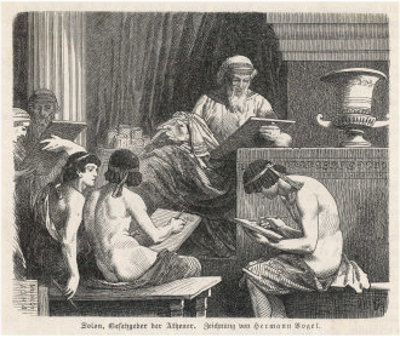
Throughout history, Kings have been lawgivers. The first, and perhaps most famous of these king/lawgivers was the ancient Babylonian king, Hammurabi. His code represents one of history’s first written sets of laws. These laws touched on all areas of life for ancient Mesopotamians, including trade, religion, and military service. Other famous king/lawgivers include Solon of ancient Athens, Lycurgus of ancient Sparta, and Moses (while technically not a king, Moses was a leader of the ancient Hebrews).
Just as these ancient kings provided order to their respective societies, so too does a man accessing the King archetype establish order in his own life and in the lives of those around him. We see the King manifest itself in us when we establish rules, guidelines, and principles for others to follow. A man accessing positive King energy doesn’t create rules just so he can reap the satisfaction of watching people obey him. Rather, his rules provide the structure that allows other people to flourish. Figuring out how to create rules that help instead of hinder people’s progress requires the kind of thoughtful reflection that comes from accessing the Magician archetype.
To completely integrate the King archetype into our lives, it isn’t enough to tell others how they should live; a man must also live by those same edicts himself. Before we can provide order for others, we ourselves must become men of discipline. As General George S. Patton told his son:
“Soldiers, all men in fact, are natural hero worshipers. Officers with a flare for command realize this and emphasize in their conduct, dress and deportment the qualities they seek to produce in their men. When I was a second lieutenant I had a captain who was very sloppy and usually late yet he got after the men for just those faults; he was a failure.”
He creates and inspires creativity in others.
According to Moore, mythological kings were often associated with fertility and creation. Many ancient cultures believed that their king’s ability to procreate determined the fate of their crops. If the king was lusty, virile, and siring numerous progeny, the harvest would be bountiful.
But we don’t have to father an entire football team in order to access the King archetype. Whenever we take part in any act of creation, whether it be writing a song, starting a business, or yes, becoming a dad, the King archetype is manifesting itself in our lives.
To fully integrate the King in our lives, however, we must inspire creativity in others as well. A man who is accessing the King archetype understands that his power and influence in the world increases as he empowers others to live to their fullest potential.
He blesses the lives of others.

“The good king delighted in noticing and promoting good men to positions of responsibility in his kingdom. He held audience, primarily, not to be seen, but to see, admire, and delight in his subjects, to reward them and to bestow honors upon them.” – Moore, KWML
One of the functions of ancient kings was to bless those whom they led. As intermediaries between the gods and earth, the king had the power to bless his people so that they might prosper. In the Bible, we can read several accounts of the great patriarchs leaving a father’s blessing on their posterity before dying.
We often associate “blessing” with a religious act. While a man certainly accesses the King archetype by giving a father’s blessing to his children, just like Jacob and Isaac did, he can also bless others around him in other ways that aren’t necessarily religious.
Simply recognizing and honoring others for their achievements is a way we can bless others. As we get older, I think we take for granted the power that a kind word can have on a young person’s life. But think back on your own experience. Remember when you were a young man? How did you feel when an older person, especially a man you admired, gave you a compliment or went out of his way to recognize an achievement? If you were like me, it made you feel awesome. You might have stuck out your chest a bit more or walked with a spring in your step. You probably still remember exactly what they said to you. That’s the power of blessing in action. It uplifts and edifies others.
We can also bless others by becoming a mentor. We’ve talked about the importance of mentorship on the site many times before, but one of the reasons so many young men are struggling today is because they lack positive mentoring from older men. Moore argues that:
“Young men today are starving for blessing from older men, starving for blessing from the King energy. This is why they cannot, as we say, “get it together.” They shouldn’t have to. They need to be blessed. They need to be seen by the King, because if they are, something inside will come together for them. That is the effect of blessing; it heals and makes whole. That’s what happens when we are seen and valued and concretely rewarded for our legitimate talents and abilities.”
As we grow older, wiser, and more in touch with the King archetype, it is our responsibility as men to bless and assist younger men on their path to mature masculinity.
He leaves a legacy.
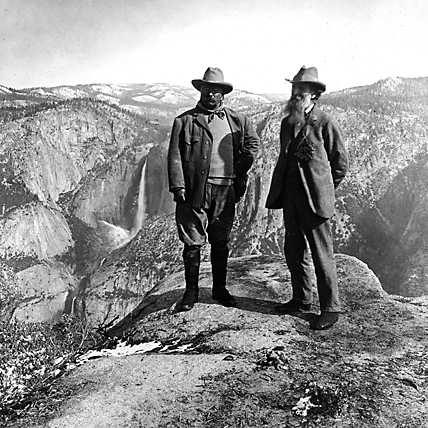
Kings throughout history were obsessed with legacy. In creating empires, building edifices, writing laws, and changing the culture, they sought to become immortal and to leave behind something that would remind subsequent generations of their lives and their greatness.
No matter the size of your principality, the desire to leave a legacy is a switch of manliness that cannot be ignored. Happily, creating a legacy need not involve the construction of great pyramids, but can come from any idea, business, tradition, relationship, or thought…anything that changes a person, the world, just a little and gets passed on, anything that lasts.
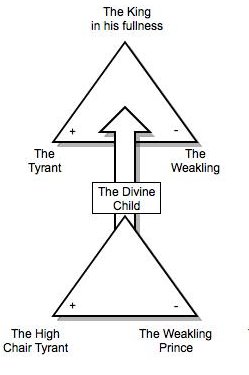
The Shadows of the King Archetype
The Tyrant
Unlike the King archetype which creates and blesses others, the Tyrant seeks to destroy and tear down. Plagued by narcissism, he really does think that he sits at the center of the universe. The Tyrant wrongly believes that power is finite; he has a scarcity mentality. He doesn’t understand the truth–that power and influence actually increase the more you share it with others. Thus the burden of maintaining his fragile illusion of absolute power makes him very insecure; any threat to his authority and supremacy enrages him and causes him to lash out with abuse–physically, emotionally, or mentally.
When the Tyrant isn’t viewing others as a threat and putting them in their place, he sees them as objects to exploit for his own gain; he is willing to push his friends, family, and employees under the bus in order to further his goals. We see the Tyrant manifest itself in this manner when businessmen or politicians further their own career at the expense of the people under their stewardship.
The Weakling
The Weakling is the passive shadow of the King archetype. Instead of taking control of his life and resolutely making decisions, a man possessed by the Weakling often abdicates his throne to others, handing over power, responsibility, and control of his life to them. This is the man who, though grown up, still lets his mother or father make his decisions for him. This is the man who kowtows to his boss’ or his wife’s every whim.
This is also the man who was abused in some way as a child, and when he becomes an adult and ascends into a position of power, relishes the opportunity to turn the tables and become the bully himself. “Now that I’m in charge, things are going to change around here!” But even in a position of power, the Weakling’s insecurity gets the best of him; he becomes paranoid that people are out to get him–and they often are because he’s such a jerk. This paranoia leads him to become even more controlling and cruel.
Moore believes that the Weakling and Tyrant shadows work in tandem with each other. It’s very rare that a man is ruled by one and not the other. Underneath every blustering Tyrant is a scared Weakling. And underneath every cowering Weakling is a Tyrant waiting to explode.
How to Access the King Archetype
The King seeks to integrate all the other archetypes and all good principles in order to reach his full potential–so that he may use this energy for a higher purpose and to bless the lives of others.
- Create more, consume less
- Leave a legacy
- Develop practical wisdom
- Become a mentor
- Find a mentor
- Establish your core values
- Develop the virtue of order
- Break away from your mother
- Develop a life plan
- Develop the traits of true leadership
- Protect the sanctity of your ideas
- Become decisive
- Avoid the corruption of money, power,and sex
- Live with integrity
Series Conclusion
This concludes our series on the archetypes of the mature masculine. I hope you got something out of the articles.
So how much credence and focus should you give to these archetypes? Well obviously their existence cannot be proven–only speculated about. And I do believe that the main focus of a man’s life should be on practical ways to take action. But pondering the more esoteric stuff is what guides you in determining what those actions should be. These archetypes represent one way–a very helpful way–of organizing those meditations and can lead you to a more productive exploration of who you are and what kind of man you want to become.
The Four Archetypes of the Mature Masculine:
Introduction
The Boyhood Archetypes – Part I
The Boyhood Archetypes – Part II
The Lover
The Warrior
The Magician
The King


